“It’s ridiculous how hard life is,” Anne Lamott (1954-present) writes in her latest book Almost Everything: Notes on Hope (2018). “Denial and avoidance are unsuccessful strategies, but truth and awareness mend.”
In a profoundly moving book that is small in size, but mighty in wisdom, Anne Lamott – author of numerous bestsellers, including Help, Thanks, Wow; Small Victories; Grace (Eventually) – uses her signature style of humor and grace to explore life’s essential truths, or what she describes as “everything I know about almost everything, that I think applies to almost everyone.”
Echoing the words of countless sages throughout the centuries – from St. Augustine to Thomas Merton to the Dalai Lama – Lamott sheds light on a most important truth for finding the lasting joy and contentment our souls ache for amid life’s inevitable hardships.
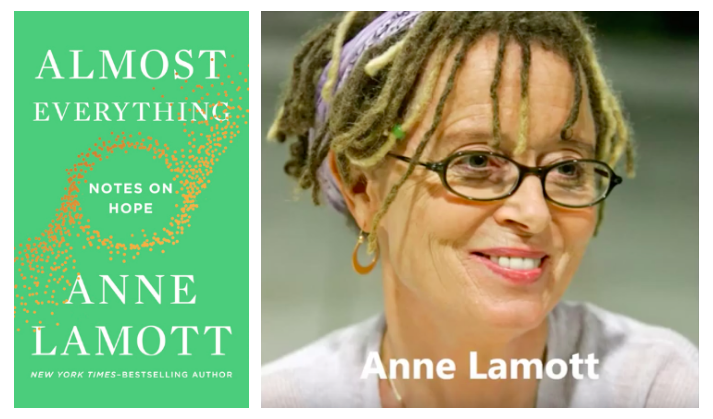
Simply put, joy is an “inside job”:
“There is nothing outside you that will help in any kind of lasting way, unless you are waiting for a donor organ. You can’t buy, achieve, or date serenity. Peace of mind is an inside job, unrelated to fame, fortune, or whether your partner loves you.”
To seek peace and contentment in things outside of ourselves is futile:
“The desperate drive to own and control in order to fill our psychic holes, relieve anxiety, fix difficulties, and cauterize old wounds takes root at an early age, and is doomed. It is like going to the hardware store for bread. It doesn’t sell bread. I can live on corn nuts and Paydays for only so long. Probably no longer than two weeks.”
So, unfortunate for many of us, retail therapy can’t provide the lasting fix:
“I hate this [fact]. I have my eye on a new rug for my study that would so inspire me to write better, faster, smart. Also, on some leftover Halloween candy, which I know this one time wouldn’t give me a sugar rush and the inevitable crash.”
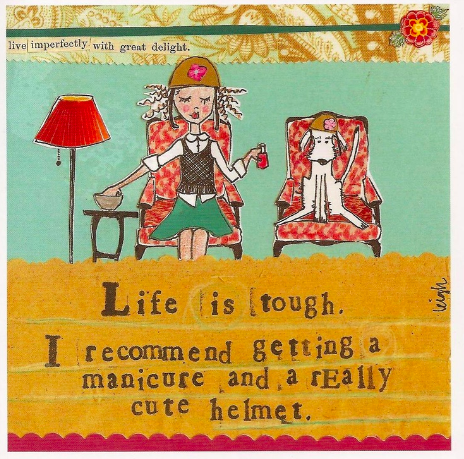
This also means that we can’t save others:
“Horribly, what this means is that [peace of mind] is also an inside job for the few people you love most desperately in the world. We cannot arrange lasting safety or happiness for our most beloved people. They have to find their own ways, their own answers.”
Even if we have really good ideas on how to help others:
“You can raise and care for your nearest and dearest the best you can, put them in the best schools, rehab, condo, or memory care, and never, ever give up on their having the best possible life available. But if you do so thinking you can rescue them with your good ideas and your checkbook, or get them to choose a healthy, realistic way of life, that mistake will make both of you much worse than you already are.”
Underpinning the notion that happiness is an “inside job” is an even greater truth:
“I has value.”
^The story behind this is precious: Lamott recalls teaching a Sunday school class on the message of being “loved and chosen as is, fearfully and wonderfully made, with love and awe, perfect and fragile.” After encouraging two teenagers and a younger boy to repeat out loud “I have value”, she turned to a little girl, who said: “I has value.”
Lamott laments this truth in a humorous fashion:
“The idea that I had all the value I’d ever need was concealed from me my whole life. I want a refund. In this world of suffering and grace, of brokenness and sky, of bad skin and buckteeth and one another, I cannot add to the value of myself. It’s not out there.”
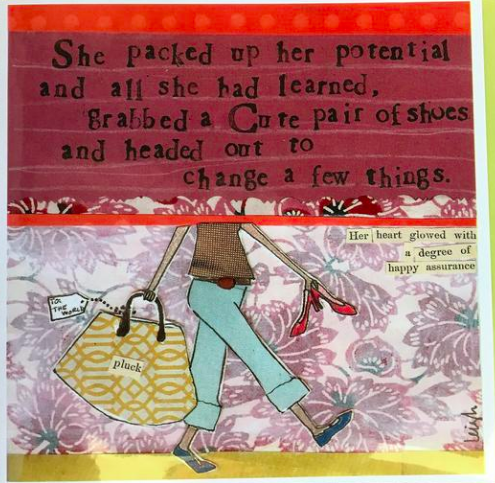
She poses an important question for us to ponder:
“Could you say this about yourself right now, that you have immense and intrinsic value, at your current weight and income level, while waiting to hear if you got the job or didn’t, or sold your book or didn’t?”
Becoming aware of this is liberating – but it also means we have to reckon with another truth:
“This is a great awakening, but with it comes horrible news: Everyone else has value, too. Even the horrible relatives you can’t stand. And the ones in your family who are over the age of eighteen are exactly where they are supposed to be, or at least get to be. They has value, as they are, whether heroic or appalling.”
So, if what we seek isn’t “out there for sale or to achieve, then where is it?”:
“It’s everywhere, within and without, around and above, in the most ordinary and trivial, in bread and roses, a glass of water, in dawn and midnight. All you have to do is want to see it. You still get to hang on to your own strategies, cravings, peccadilloes, ambition, your $200 jeans and your DKNY cashmere coat of mail. You can still have ice cream, but maybe now you don’t need Bourbon FigButter Gelato with Unborn Pistachios. And maybe you can taste each bite, and not have to shovel it in like a backhoe.”
[…]
“It’s all here, everything we seek and need, inside us. This does not mean that I don’t daydream about the latest iPhone or Tesla, or try to fix a struggling relative. But it won’t work for any length of time. Then there I’ll be, in my superior clutter, bookshelves groaning with tomes that surely set me apart as an intellect, with a phone I can’t work. And the same old existential dread.”
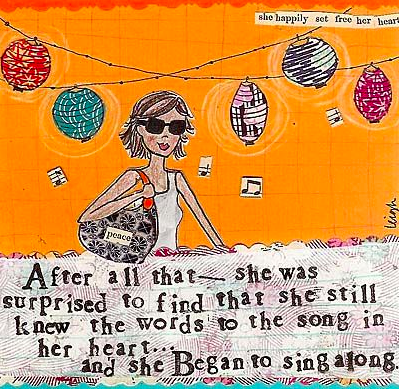
This can sometimes be a harsh reality:
“[Carl] Jung wrote that when we look outside ourselves, we dream. When we look inside, we wake up. Why would you walk out of a lovely dream, or Plato’s cave, into real life?
One answer is that life lasts so briefly, like free theater in the park – glorious and tedious; full of wonder and often hard to understand, but right before our eyes, and capable of rousing us, awakening us to life, to the bright green and very real grass, the mess, the sky, the limbo. This is the great unexpected promise, that we can choose now, no matter our current condition. But we can’t choose it for anyone else.”
But, at the end of the day, we can ultimately choose joy:
“Joy is always a surprise, and often a decision. Joy is portable. Joy is a habit, and these days, it can be a radical act. Buffy Sainte-Marie said, ‘Keep your nose to the joy trail.’”
Almost Everything is a delightful read in its entirety, with equal parts humor and wisdom. Divided into short chapters that explore the fundamental truths of human existence, Lamott reminds us of the reasons for hope, reigniting our souls and encouraging us to hold on in the midst of despair, uncertainty and change.
Similar posts:
- Hallelujah Anyway: Anne Lamott on Extending and Receiving Mercy in a Broken World
- Epictetus on How to Live a Good, Fulfilling Life
- Gisele Bündchen on Self-Awareness, Challenging Your Thoughts and Paying Attention to Your Inner Voice
- The Dalai Lama and Archbishop Desmond Tutu on the Four Qualities of the Mind that Lead to Joyful Living
- Saint Augustine on the Happy Life and Finding Joy

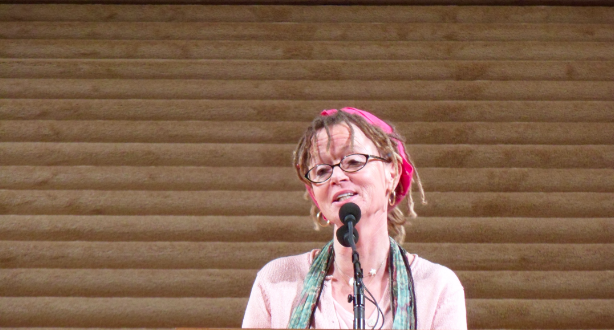
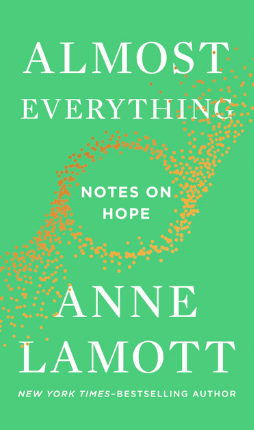
This post was perfect for a beautiful Sunday morning read. I read Anne Lamott’s early book ‘Traveling Mercies’ back in the late 90s. It helped expand my awareness of what faith, life and belief is about. I’ve read a few more since then. ‘Bird by Bird’ ~ Some instructions on writing and life ~ is another great one.
Thanks for the recommendations, Mary Lou! I’ll have to check those out. Anne Lamott is one of my favorites.